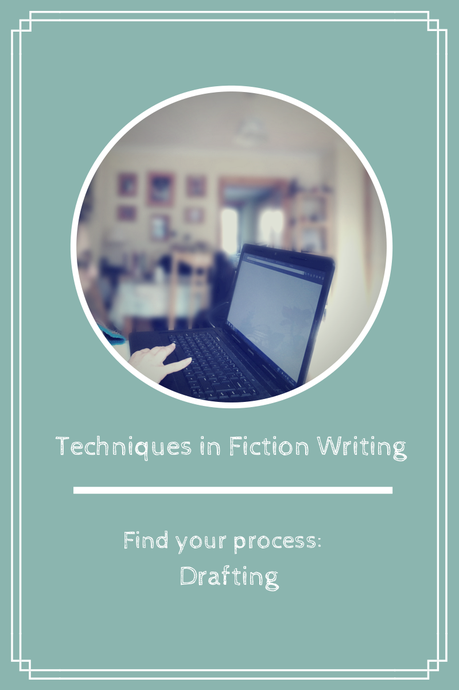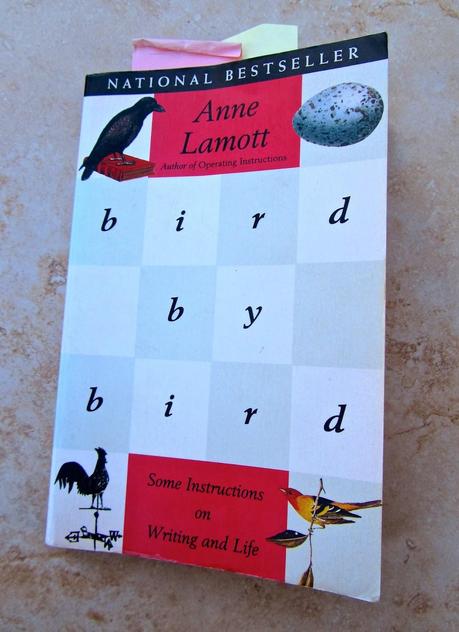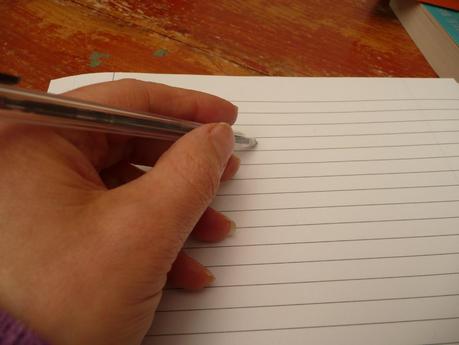Changing the beginning seemed easier than changing the husband so I started my novel all over again. It was still supposed to be funny. But even I didn't laugh.
 Then I read Anne Tyler's novel, The Beginner's Goodbye. It has an opening line to die for. Or maybe to live for. And since you're now itching to know, it is: "The strangest thing about my wife's return from the dead was how other people reacted."
Then I read Anne Tyler's novel, The Beginner's Goodbye. It has an opening line to die for. Or maybe to live for. And since you're now itching to know, it is: "The strangest thing about my wife's return from the dead was how other people reacted."It grabs you. My opening line didn't. Anne Tyler's sentence also manages to let us know what the novel is about. Mine didn't, or not enough. So it had to go too.
Shortly after that ego-shattering moment, I read Stephen King's book about writing, which has the descriptive (if not imaginative) title: On Writing. King's advice regarding revealing your first drafts is: show them to nobody, not even to your spouse. Wish I 'd read that before. Don't show the draft as you are writing it, King says. Not even when it's finished. Instead, rewrite. And Stephen King has a spouse who loves to read his writing. Mine would probably prefer to have all his teeth pulled. He reads science fiction. I don't write it.
Up till now, every novel I've written has been read by at least two people in the early stages. And up till now I've been slow at writing fiction: that first novel took mumble mumble mumble years to write and the second has stalled. So for novel number three, I decided to adopt another Stephen King suggestions and power ahead with an entire first draft before rewriting. It's not just his method: loads of writers work that way: In Bird by Bird, Anne Lamott says write shitty first draft and it's the battle cry of NaNoWriMo. Write, write, write they say, and don't bother how crap it is. I even suggest it in the first post on this blog. I know that it's a great way to get beyond writer's block.

But I'd slipped, and had gone back to editing as I wrote with the result that I was stalling on the third novel too. So, it seemed a good idea to take my own advice!
Honestly, I don't see how anyone manages to get through 90,000 words before they make a single change. My mind doesn't work that way. Instead, I write a scene or a chapter, and then I go for a walk, or to the supermarket. Or I wash the dishes. Suddenly an idea comes to me about how to improve that scene or chapter - or it might be a way to improve a character or even the entire storyline. Anyway, I get back home, put the groceries away, or I finish washing the dishes, and scribble some notes on the draft. Maybe I could leave it there - except I can't, especially when the new idea affects character or plot development. To go forward with the story, I need to first go back.
I'm guessing I'm not alone. When you work on a novel, the characters begin to invade your mind. They form themselves by their actions and as you get more familiar with them you realize that no, they wouldn't do what you've got them doing on page one. Let's imagine you write three chapters of a novel with two characters, Tom and Jerry. Tom is sweet and kind and best buddies with Jerry.* Then you realize that it might be more realistic, as well as more exciting, if Tom is an accident-prone, homicidal maniac who tries to eat Jerry at every available moment. Now you have a little revision to do, and it seems pointless to carry on for another 50,000 words before making those revisions.

Actually, it seems more than just pointless - each time I've added a major revision to a scene, it has helped to get to know the characters better and for the story to open out. Each change I've made has led to others that wouldn't have happened if I'd just ploughed on. And the need to make those changes would not have gone away, but would have been on my mind interfering with my writing. Now I'm writing more freely and enjoying what I write - and my characters are still surprising me.
All of this has me wondering if there is any such thing as a first draft. I can see that if you have meticulously planned your plot and characters till you know every detail of their lives that you might be able to do a draft from start to finish. But is that really a first draft? And hey, now I think about it - does it even matter? What we all need to do as writers is find the way that works for us. I think I've found my way and if you've found yours (or even if you haven't) I'd love to hear from you. Do you beaver away, completing every word before the glance back? And if so, how do you deal with the changes that occur as you write? Or do you revise as you go along? And if so, does that help or hinder your writing?
(*I'm assuming everyone in the world knows who Tom and Jerry are, but just in case I'm wrong - one is a cat, the other a mouse.)

